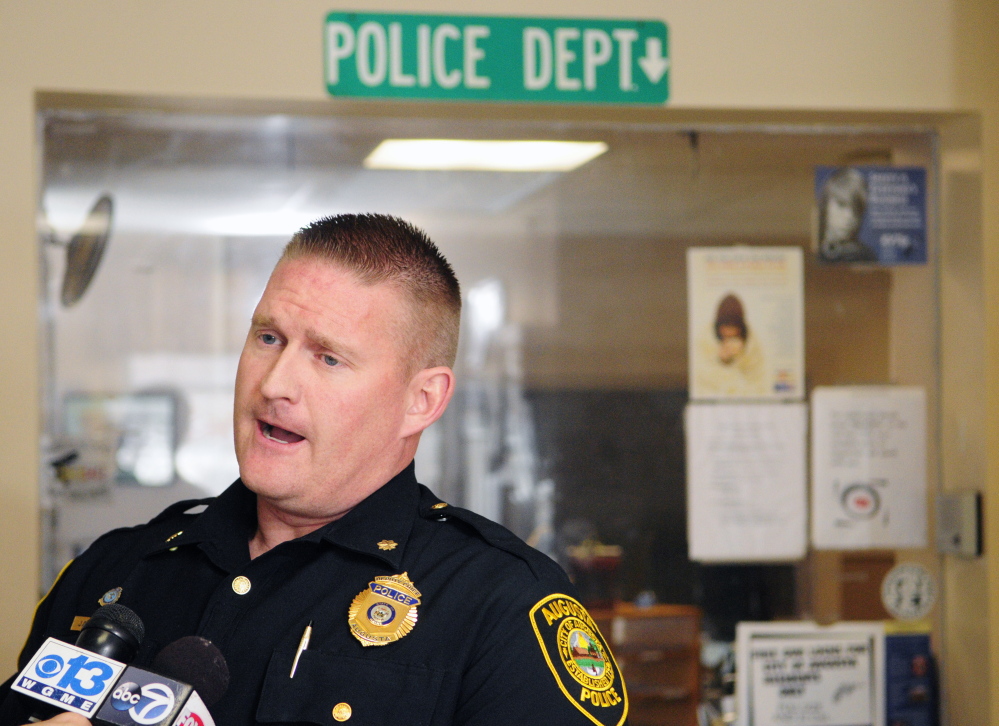AUGUSTA — Police and city officials propose to seek grant funding to form a partnership with drug treatment providers and five other law enforcement agencies to create a diversion program to get addicts caught in possession of drugs into treatment instead of the criminal justice system.
Participants in the program, who would be low-level, first-time drug offenders, could avoid having the drug charge against them placed on their record if they go through drug treatment successfully.
Augusta Deputy Chief Jared Mills said treatment is the key missing piece as local officials look to get rid of heroin and other addictive drugs.
“This is a situation where the state doesn’t have an answer to this issue right now,” Mills told city councilors, who expressed informal support for the proposal Thursday. “Councilor (Jeffrey) Bilodeau asked, a couple of years ago, how do we get rid of heroin in the city? This is the only piece left the council hasn’t addressed. We’ve done education with (plans to add) the DARE officer, we’ve added extra detectives (for drug enforcement); now this is the treatment portion we can finally be a part of. And we’re going to give it our best shot and see if this is something that could work.”
Drug overdose deaths in Maine reached a new high of 272 in 2015, an increase of 31 percent over the previous year, according to data from the Maine Attorney General’s Office. And statistics released by the state in August showed there already had been 189 drug overdose deaths in the state through June 30, a 50 percent increase over the same period in 2015.
Locally, community members and treatment providers have held meetings to come up with solutions to the epidemic. In Augusta alone, the Fire Department dealt with 50 heroin overdoses in 2015, up from 26 in 2014 and just six in 2007, according to Fire Chief Roger Audette.
Mills said people likely to be in the treatment program would include first-time offenders who overdose on drugs and are caught possessing illegal drugs, but who aren’t believed to be major dealers. Such people would be charged with drug possession, but their criminal case would be on hold while they participate in the program. If their treatment is successful, those charges never would go on their record.
Mills noted that could benefit not just the participant who would get off drugs, but also ease the burden on jails and the courts because those low-level offenders would be diverted from the criminal justice system if they are successful in drug treatment.
Other law enforcement agencies that could partner with Augusta police in the program are the Winthrop, Monmouth, Gardiner and Hallowell police departments and the Kennebec County Sheriff’s Office.
Send questions/comments to the editors.




Success. Please wait for the page to reload. If the page does not reload within 5 seconds, please refresh the page.
Enter your email and password to access comments.
Hi, to comment on stories you must . This profile is in addition to your subscription and website login.
Already have a commenting profile? .
Invalid username/password.
Please check your email to confirm and complete your registration.
Only subscribers are eligible to post comments. Please subscribe or login first for digital access. Here’s why.
Use the form below to reset your password. When you've submitted your account email, we will send an email with a reset code.